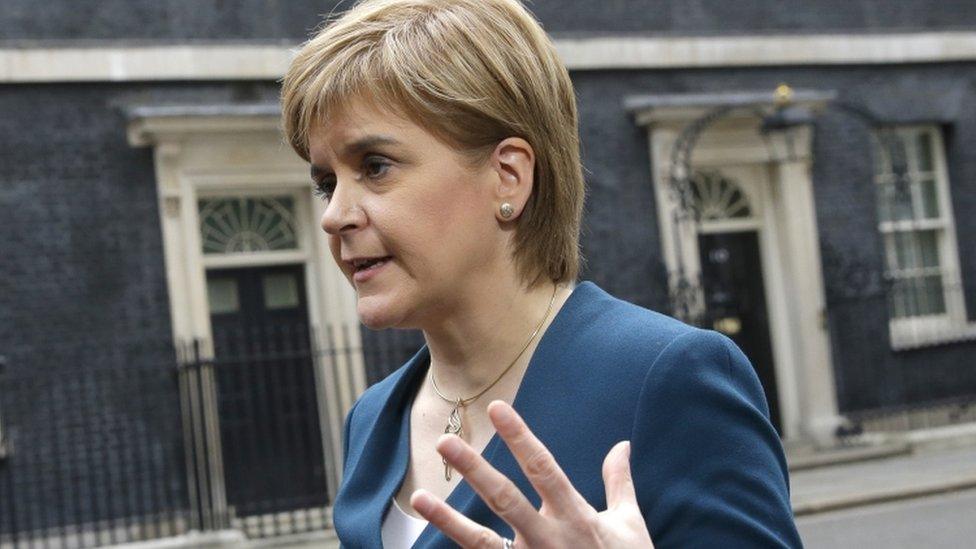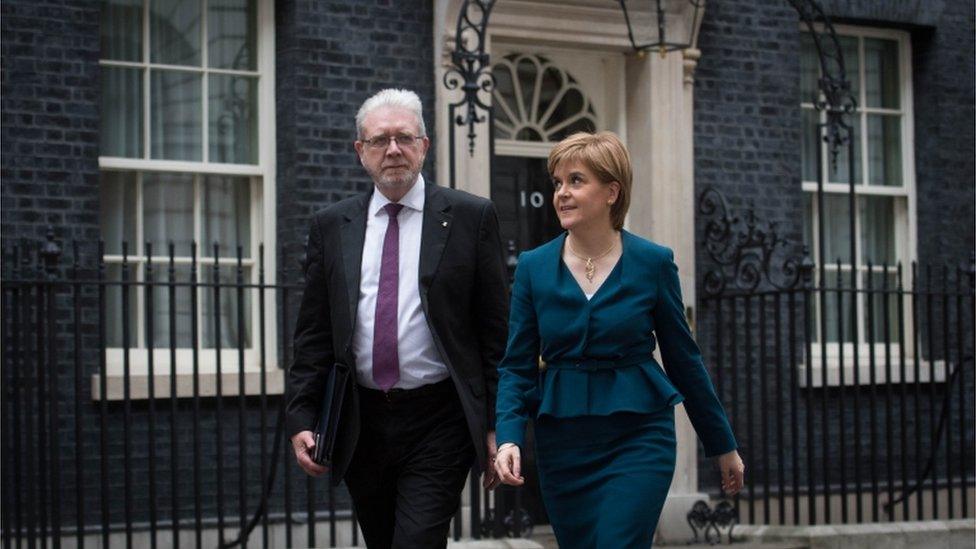NI ministers may benefit from Brexit restraint
- Published

Nicola Sturgeon pronounced herself frustrated by what she sees as the lack of a UK government strategy for the forthcoming negotiations with the EU
Nicola Sturgeon was the centre of attention at this week's Downing Street Brexit meeting.
The Scottish First Minister pronounced herself frustrated by what she sees as the lack of a UK government strategy for the forthcoming negotiations with the EU.
By contrast, the Stormont duo were extremely restrained, arguing it is important they are represented at any Brexit talks but not voicing much criticism of Prime Minister Theresa May.
Clearly it's hard for the Brexiteer First Minister Arlene Foster and the Remainer Deputy First Minister Martin McGuinness to be too vociferous without getting into difficult terrain.
But it's being seen as an achievement in the corridors at Stormont Castle that the two leaders were:
Able to both sign up to their joint letter to Theresa May
Sufficiently relaxed about their Brexit differences that they were happy to stand side-by-side and field questions outside Number Ten
There is also some satisfaction that London appears to have recognised Northern Ireland's unique circumstances. That left the SNP asking the Prime Minister in the Commons why, if Northern Ireland is getting a special deal, Scotland can't get one too.
Theresa May didn't confirm any "special deal" but she didn't deny it either, referring instead to the land border and Northern Ireland's "particular position".
As I watched the exchange I got a sense of déjà vu - it reminded me of the time when Stormont was lobbying for a Corporation Tax cut and Alex Salmond said Scotland must follow suit.
We don't yet have any sense of how Westminster or the EU might try to resolve the many difficult issues concerning the border and where and how the movement of people and goods will be monitored.
But this week's Downing Street meeting left the sense that if there are any flexibilities on offer, Stormont's low key Executive ministers appear further up the pecking order than their more vociferous Scottish counterparts.
- Published24 October 2016

- Published12 August 2016